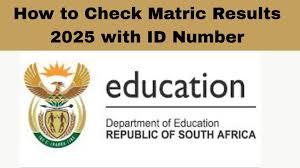Understanding the Importance of Life Orientation
Life Orientation (LO) is a critical subject in the South African education system that extends beyond theoretical knowledge. It equips learners with essential life skills, personal development insights, and community engagement strategies, preparing them for the multifaceted challenges of adulthood.
In Grade 12, particularly as you prepare for the November exams, mastering Life Orientation topics is vital for your overall academic success and personal growth. The subject doesn’t just test your retention of facts; it addresses your ability to apply concepts in real-life situations, enhancing your emotional intelligence, decision-making skills, and civic responsibility.
Examination Structure and Key Components
The November Life Orientation examination typically encompasses a few critical areas:
- Personal Development:
- Stress Management
- Conflict Resolution
- Building Positive Relationships
- Health and Well-being:
- Nutrition and Diet
- Substance Abuse Prevention
- Mental and Physical Health
- Social and Environmental Responsibility:
- Civic Duty
- Environmental Conservation
- Democracy and Human Rights:
- The Bill of Rights
- Social Justice
- Career Choices and Planning:
- Career Pathways
- Entrepreneurship
- Study and Exam Preparation Techniques:
- Effective Study Strategies
- Time Management Skills
Key Revision Resources
To excel in the Life Orientation Grade 12 November 2024 exam, accessing and utilizing the most effective resources is essential. Below are links where you can directly download relevant materials:
- Memo 1 (Afrikaans): Download PDF
- Memo 1 (English): Download PDF
- Paper 1 (Afrikaans): Download PDF
- Paper 1 (English): Download PDF
By downloading these resources, you will be reinforcing your understanding and enabling yourself to work on past papers and exemplars that are structured similarly to what you can expect in the actual examination.
Core Topics for November 2024
1. Personal Development
Stress Management Understanding stress and how it affects both your mental and physical health is crucial. You should be able to identify various stressors (academic pressure, family issues, social expectations) and discuss coping strategies such as:
- Mindfulness and relaxation techniques (yoga, meditation).
- Effective time management to reduce academic stress.
Conflict Resolution Utilizing techniques for both interpersonal and intrapersonal conflict resolution can enhance your relationships. Important strategies include:
- Active listening and communication.
- Negotiation and compromise.
2. Health and Well-being
Nutrition and Diet Understanding the principles of a balanced diet, the food pyramid, and the consequences of poor nutrition (like obesity or eating disorders) is essential. Be prepared to discuss:
- The importance of micronutrients in your diet.
- How eating habits impact mental health and academic performance.
Substance Abuse Prevention This includes comprehensive knowledge about the effects of drugs and alcohol on the body and the mind, and strategies to resist peer pressure.
3. Social and Environmental Responsibility
Civic Duty You’re encouraged to engage with your community through volunteerism and understanding your rights and responsibilities as a citizen. For example:
- Participating in community clean-ups or awareness campaigns concerning social justice.
Environmental Conservation Understanding concepts like sustainability, pollution, and climate change are pivotal in this section. You might explore actions you can take to promote a healthier environment.
4. Democracy and Human Rights
Familiarize yourself with the Bill of Rights and its sections. Know how to apply it in real-life scenarios, such as advocating against discrimination, and recognizing how to engage in civic actions that uphold human rights.
5. Career Choices and Planning
This topic covers understanding different career paths, the importance of making informed decisions, and how to prepare effectively for the workforce. Key points include:
- Crafting a CV and cover letter.
- Preparing for interviews and what employers seek in candidates.
Revision Strategies for Success
1. Create a Study Schedule
To balance your LO studies with other subjects, develop a timetable that allocates specific times for studying Life Orientation, ensuring a comprehensive review of all topics.
2. Engage with Study Groups
Collaborating with peers can reinforce your comprehension. Teach each other key concepts, quiz one another, or discuss the moral dilemmas presented in case studies.
3. Utilize Past Papers
Regularly practicing on past examination papers is one of the best ways to familiarize yourself with the exam format. Use the memorandums to assess your answers critically.
4. Flashcards for Key Terms
Create flashcards for important concepts, definitions, and theories within Life Orientation. This makes recollection easier and can enhance memory retention.
5. Connect Theory with Practice
Whenever you learn a new concept, try to connect it with real-life situations or personal experiences. This makes it easier to grasp and remember essential information.
Handling Exam Anxiety
It’s normal to feel anxious as the exam approaches. Here are some tips to manage this:
- Relaxation Techniques: Practice deep breathing, meditation, or yoga regularly.
- Visualize Success: Picture yourself confidently answering questions in the exam room.
- Stay Healthy: Maintain a balanced diet, exercise, and get enough sleep in the weeks leading up to the exam.
Conclusion
Preparing for the November 2024 Life Orientation examination requires dedication, effective study methods, and access to the right resources. By utilizing the downloadable materials, mastering the key topics, and implementing detailed study strategies, you will be well-equipped not only to succeed academically but to apply these life skills in real scenarios.
Remember that Life Orientation is not simply a subject for exams; it builds a foundation for how you will navigate life’s challenges ahead. Embrace this opportunity to learn and grow, ensuring you go into the examination room confident and prepared.
Good luck with your preparations! You’ve got this!





